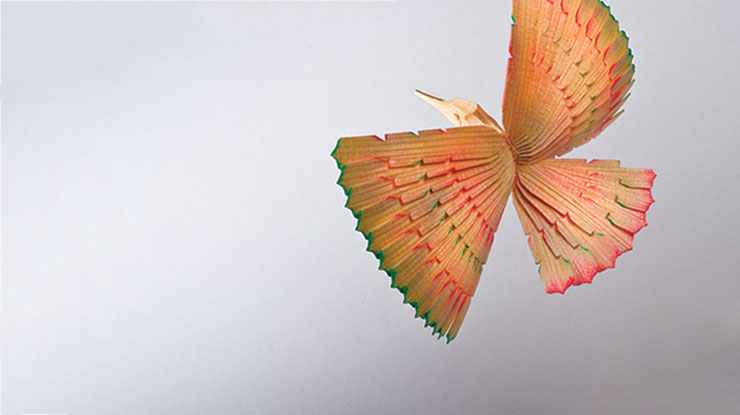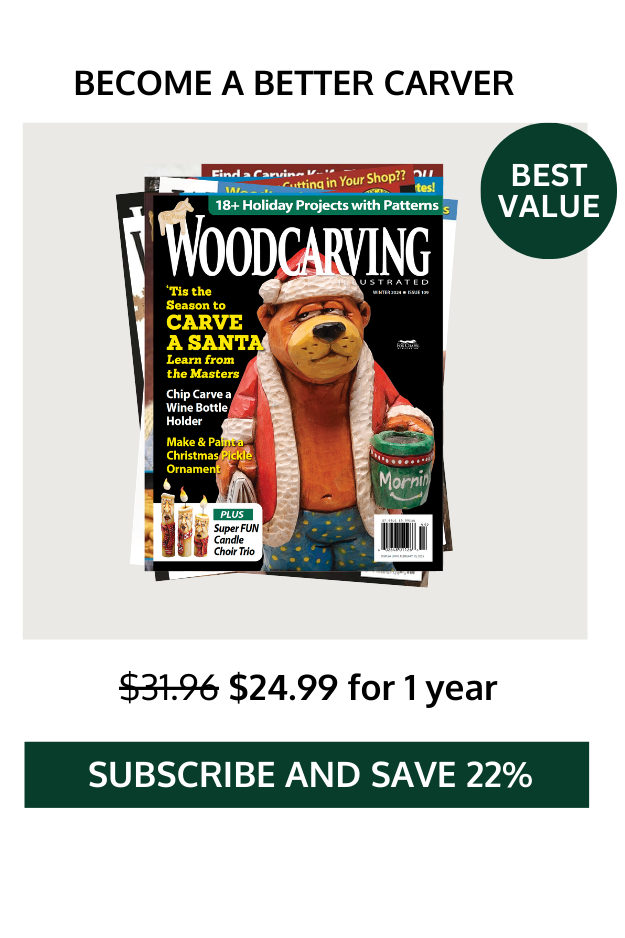 Use a few simple cuts to transform a simple blank into a meaningful gift
Use a few simple cuts to transform a simple blank into a meaningful gift
By Wayne Barton
This organic inspired design combines stylized leaves with geometric designs. The combination of classic and modern makes it a good choice for almost adults and children. The durable design will allow it to be passed down from generation to generation.
Getting Started
Transfer the pattern to the blank. Cut around the perimeter. Center and trace the mirror insert onto the opposite side and cut the recess with a router. The recess should be slightly deeper than the thickness of the mirror. Then, use a round-over bit or sandpaper to remove the sharp corners.
Carving the Mirror
You can carve this mirror with just two knives. This design combines traditional three corner chips with a few variations on those traditional chips with an leaf motif. Use standard chip carving techniques for the geometric chips. Carefully remove the wood around the leaves and berries with the chip carving knife. Then, carve the leaf veins by making a simple two-sided line cut. Use a stab knife to add accents.
 |
THE JOY OF CHIP CARVINGThe final book from the leading icon in US wood chip carving, Wayne Barton offers his expert instruction and inspiration based on a lifetime of study, understanding, practice, and achievement. This book details:
|
Finishing the Mirror
If you carved the mirror from an attractive hardwood, such as butternut or walnut, apply an oil finish to accent the grain. When the oil finish is dry, apply a clear satin polyurethane. If you carved the mirror from basswood, I suggest a medium brown stain to accent the piece. After you apply the stain, seal it with clear satin polyurethane. Use epoxy to secure the mirror in the recess.
Materials:
• Basswood or butternut, 5/8″ (1.6cm) thick: 4 5/8″ x 11 1/4″ (11.7cm x 28.5cm)
• Graphite paper
• Polyurethane gel and spray: satin
• Stain (optional): nutmeg
Tools:
• Band saw or scroll saw
• Chip-carving knives
Get the patterns here!

CLICK HERE to see more great projects from Woodcarving Illustrated Summer 2017 (Issue 79). CLICK HERE to purchase the issue.







